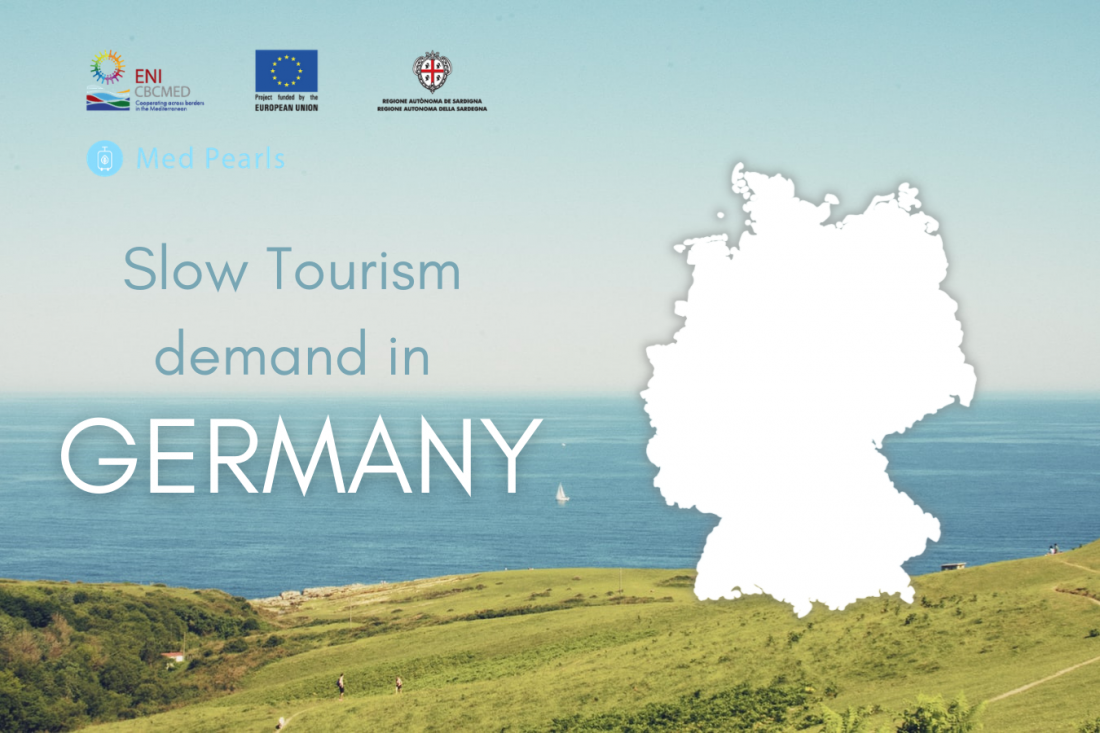Med Pearls : comment attirer le marché allemand avec les produits du Slow Tourism?

Ce contenu est disponible uniquement en anglais
Moving forward with the description of the key outbound-markets for Slow Tourism, in this article we will focus on how tourism agents should create, promote, and market their slow tourism products to the German market. This follows the series of articles about the Med Pearls research projects on the international demand for Slow Tourism (the ‘Research study on Slow Tourism international trends and innovations’ and the ‘Analysis of the Slow Tourism International Demand’).
With a population of almost 80 million people, Germany ranks in the first place on the list of tourism outbound markets towards the countries of the Med Pearls project. In 2018, the number of outbound overnight trips from Germany was of 162.8 million trips, where 72% of the trips where overseas and 28% inside Germany. Figures showed that in 2017 Germans travelled on average 3.3 times a year and usually spent around two weeks on summer holidays. The average summer holiday budget in 2018 was of 2.476€. Regarding type of vacations, in 2019, 64% of German travellers did a seaside vacation, followed by 23% that did city trips, and 22% trips to the countryside destinations. Furthermore, in 2018, the most popular destinations of the Med Pearls project, by number of total tourist arrivals, were: Italy (13,5 million arrivals), Spain (11.4 million arrivals), Greece (4,4 million arrivals) and Egypt (1,7k thousand arrivals).
The research also found that although not being able to identify a slow tourist profile in in Germany, there are some habits and trends of the general German traveller regarding sustainability that relate to the Slow Tourism philosophy (2017):
- 70% of Germans think that brands have more responsibility to make sustainable decisions than as they do as individuals.
- 59% tend to have a better image of holiday companies that actively invest and participates in environmental or social causes.
- 60% of travellers would book more environmentally sustainable holidays if they were more available.
As shown in other markets, one of the main highlights of the market research has been that the tour-operators that sell ‘slow tourism products’ or that have a ‘slow’ philosophy, are usually small or medium-size companies. However, in comparison to other outbound markets, the research discovered that German tour operators are very conscientious about “slow” and “sustainability”, so they are adequate to offer “slow tourism” products. Especially the ones focused on nature and outdoors and that design tailor-made products. They are, jointly with French our operators, the ones that have more labels and certifications related to “sustainability” or “responsible tourism”. Furthermore, it is particularly interesting the fact that Germans have a strong culture of buying holidays trips through operators, and that a lot of this ones have cross-selling in the United States, Canada, and Australia.
Regarding tourism fairs, in Germany there are no travel fairs dedicated only to Slow Tourism. However, the research found that more and more fairs have sections and stands dedicated to “responsible tourism” or “sustainable tourism”. Like with tour operators, the smallest fairs are the most specialized and often the ones with a dedicated section on responsible tourism. Germany holds important international tourism and travel fairs, like the ITB Berlin (one of the most important trade travel fairs), the CMT (an important travel and caravanning fair with a special exhibition where Slow Tourism could fit) and the F.RE.E (travel and leisure).
Besides these outcomes, the reader will find that the research also developed an intuitive guide of recommendations to help in the creation of slow tourism products and how to get tour operators interested in their “slow destinations" and products. For further information on this topic, the German market analysis, or the other studies done, you can check the links below:
- Market research on Slow Tourism Demand (Germany list of operators, fairs, media and other relevant info)
- Germany - Slow Tourism International Demand
- Manual and Analysis of the Slow Tourism International Demand
- Recommendations - Slow Tourism International Demand







